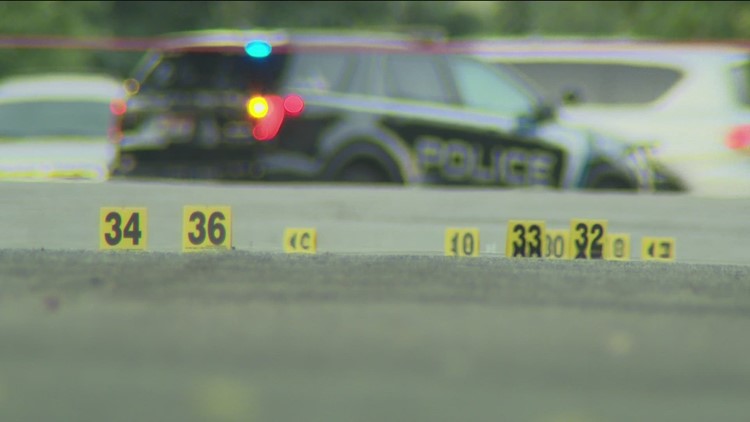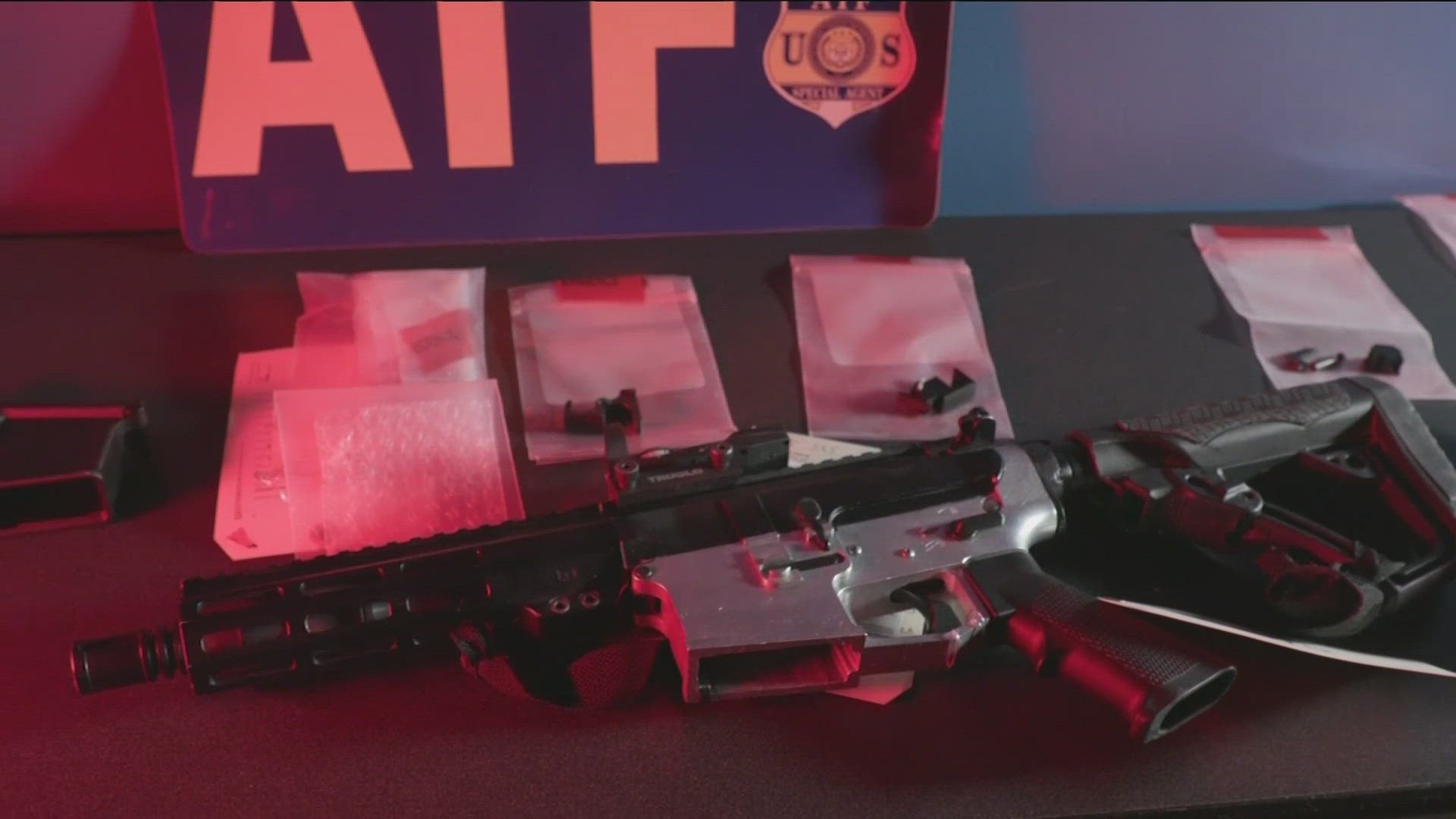BOISE, Idaho — Scott Mulcahy knows the process following police shootings fairly well. After all, he got in a gunfight with a man who escaped from a Nevada prison in 1996, later became the department's Office of Professional Standards captain and then the Boise Police Department's deputy police chief until his retirement in 2019.
That day in June of 1996, Mulcahy was placed on administrative leave immediately after the shooting. Three days later, he went back to work.
This is fairly normal -- Boise Police Union spokesperson Brian Holland said officers usually get around a week of leave following a police shooting in order to complete investigation requirements and start restorative wellness. According to BPD's policy manual, this is approximately 40 hours, and officers can take additional time if needed.
For comparison, deputies in the Ada County Sheriff's Office can go back to work after three days, according to an ASCO spokesperson. A criminal investigation and an internal investigation are then conducted to determine any wrongdoing.
Mulcahy said three days of leave was enough for him. He was 30 years old at the time, he wasn't married with kids and he wasn't dealing with anything else outside of work -- things that the agency usually can consider when bringing an officer back on duty after a shooting.
Three days leave is a standard, based on reviews from the International Association of Chiefs of Police. According to their officer involved shooting guidelines, "some officers may be minimally impacted and may find prolonged leave (is) counterproductive."
"I think there's benefits to having that turnaround time, it's more about routine," Mulcahy said. "But there needs to be time where they get back into the right frame of mind."
Holland echoed the same -- those days are "just standard to get their mind right" he said, which is why officers have to see a counselor at least once following the incident. Typically, the decision to go back to work is made based on a collaborative discussion between the involved officer and their supervisors, Holland said. The Ada County Sheriff's Office also offers debrief sessions and access to employee assistance programs for their deputies.
According to Boise State University Professor Bill King, who specializes in officer wellbeing, there isn't a lot of research on how much paid leave officers should get after a shooting.
But two parents say they're still not satisfied.
Skip and Gina Banach are the parents of 39-year-old Jeremy Banach, who was shot and killed by police in Star on June 15, 2022. Skip Banach was a former San Diego police officer who saw a range of police shootings in his time in the force, and also saw how things changed across state lines.
Skip Banach said following a police shooting in San Diego, officers are placed on administrative leave, then on desk duty until the investigation of the shooting is completed -- something that isn't commonplace in Boise. He said he's seen many police shootings, and his former department prioritized other options that weren't always deadly force.
"There's no way you're back in the field, happy-go-lucky," Skip Banach said. "That stuff wears on you."
There's been six police shootings in Boise since January 2023. Data gathered from previous BPD news releases show three police shootings in 2022, five in 2021 and one shooting in 2020.
Most recently, two Boise Police officers shot and killed 54-year-old Christian Johnson near Ann Morrison Park on Aug. 3. A week prior, 28-year-old Macey Juker died in the North End after a shootout with police. On June 24, police also shot 22-year-old Payton Wasson after they say he ran from law enforcement with a gun in his hand.
Mulcahy can't explain the spike in shootings this year, but from his perspective during his time with Boise Police, he said crime and police shootings are based on circumstances.
"In my shooting from 1996... Over the next three years I think we had 10 shootings. Once we went two years without any," Mulcahy said. "I don't think there's one easy fix. It's random. They happen, then they don't happen."
Post-shooting investigation
When an officer shoots their gun or shoots and kills someone -- what is described as "deadly force" -- a criminal investigation into the shooting is conducted, known as a Critical Incident Task Force investigation. This is done by an outside police agency.
An internal investigation would also be conducted by the agency that was involved in the shooting after the criminal investigation was completed -- however, a Boise Police spokesperson said the department has now been reviewing their policies surrounding the timing of each investigation and has decided that it's more timely and efficient to conduct the internal review before the criminal review has concluded.
An officer has a duel responsibility in these cases, Mulcahy said. They have the same rights as any other person being investigated for a crime. But on the internal side of the investigation, an officer gives up those rights.
"As an officer you are required to answer questions honestly, truthfully and completely," Mulcahy said.
So, why are officers on duty during a criminal investigation?
Mulcahy said it's akin to arresting someone. Investigators have to have probable cause to believe an officer committed a crime after using deadly force.
Usually, those critical incident investigators can tell pretty quickly if an officer was in the wrong by their review of footage, audio, evidence and witness reports, Mulcahy said, but the investigation still has to be sent to a prosecutor who will decide whether or not to charge the officer with a crime. Sometimes, this process can take months.
"If we don’t have reason to believe they committed a crime, we can’t take away their rights — same with a police officer," Mulcahy said.
But Skip Banach doesn't understand how it's possible that officers in Ada County can return to work if they haven't been criminally cleared. His wife, Gina Banach, thinks it's a huge "red flag."
"You can't have police policing themselves," she said. "No one is trying to undermine police, but we just want accountability."
When Mulcahy was captain of the Office of Professional Standards, or informally known as Internal Affairs, he would respond to the scene during a police shooting. Standard practice is to see what evidence was collected, to review audio and video and review police reports. If the shooting killed someone, the officer that shot the person would not write the report.
Following that, Mulcahy would sit in on the criminal investigation interviews to make sure the story was accurate. After his shooting in 1996, he was interviewed by Idaho State Police, he said. His internal affairs captain at the time asked Mulcahy questions like, "Did you think of any other force options you could have used?" Or, "how and why did you put yourself in this situation?"
Either way, a shooting is an emotional event, Mulcahy said. He had a friend, also a former police officer, that shot and killed someone and refused to go back to work.
“This is the ultimate thing you will be asked to do as a police officer," Mulcahy said. "You have to make decisions in great peril. Am I protecting someone else? Am I keeping the community safe?"
Stretched thin
Holland said the department was down nine officers after the two most recent shootings, which always takes a toll on their staff because those officers were placed on immediate administrative leave following the incidents, per BPD policy.
"There's nothing wrong with the process. We can’t just throw them back out. There’s a reason for it. It’s a sign of the times. There’s not a lot of people knocking on our door to come work in the profession," Holland said.
Holland said the force is also down 40 officers below their average need.
"We have our staffing levels from 20 years ago," Holland said. "We have people retiring, we have people thinking they don’t want to be a police officer... If we have a shooting then those officers involved are no longer on the street.”
Boise Police Chief Ron Winegar said after the shooting of Christian Johnson that BPD's resource's were "stretched thin." Almost within the hour of that shooting, a 16-year-old was hit and killed by a truck near State Street, which consumed a large portion of the department's resources.
Holland said they have officers working overtime, which some appreciate. But supervisors have to make sure they aren't working their officers to the point where they are ineffective.
"We need to hire," Holland said. "It's not easy."
Watch more Local News:
See the latest news from around the Treasure Valley and the Gem State in our YouTube playlist:
HERE ARE MORE WAYS TO GET NEWS FROM KTVB:
Download the KTVB News Mobile App
Apple iOS: Click here to download
Google Play: Click here to download
Watch news reports for FREE on YouTube: KTVB YouTube channel
Stream Live for FREE on ROKU: Add the channel from the ROKU store or by searching 'KTVB'.
Stream Live for FREE on FIRE TV: Search ‘KTVB’ and click ‘Get’ to download.



